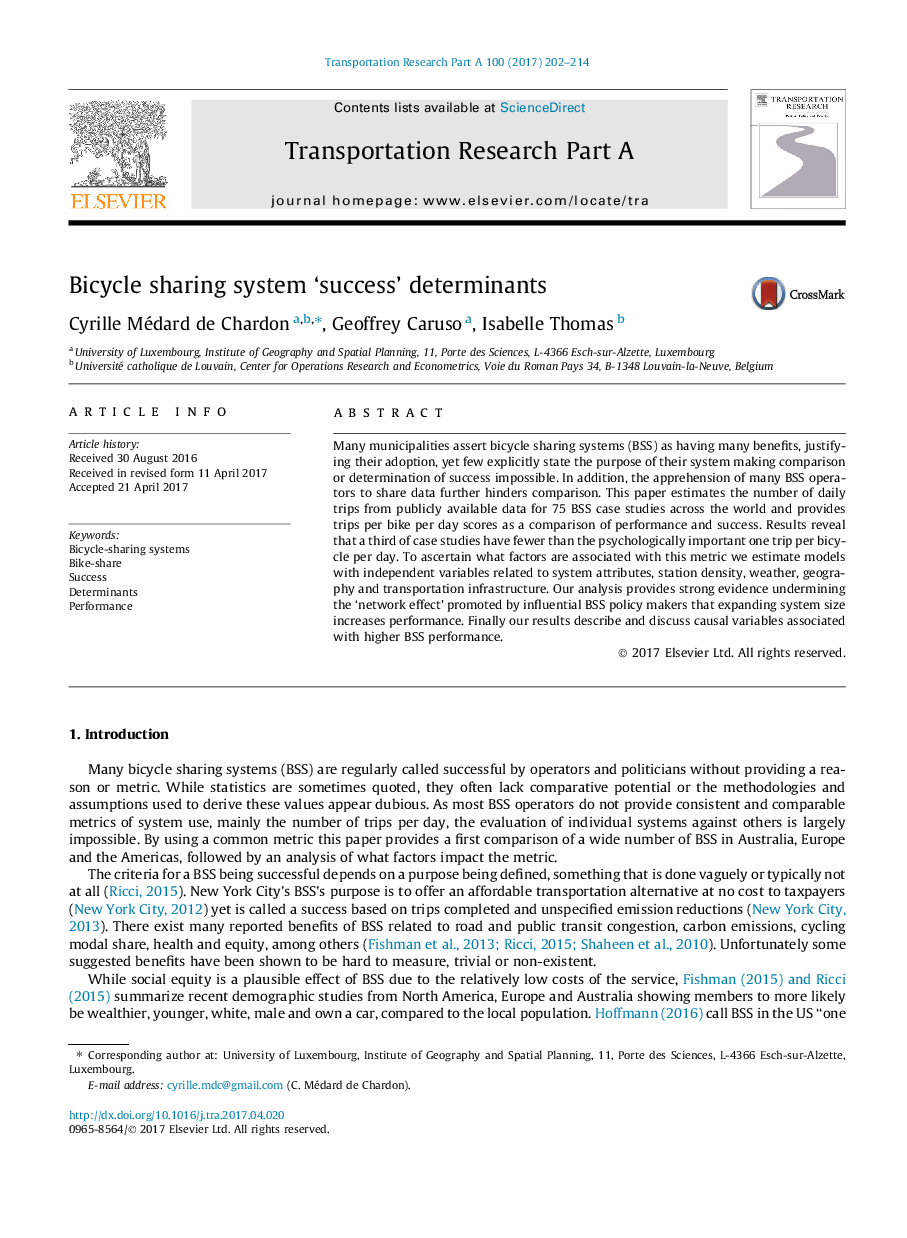| Article ID | Journal | Published Year | Pages | File Type |
|---|---|---|---|---|
| 4928972 | Transportation Research Part A: Policy and Practice | 2017 | 13 Pages |
Abstract
Many municipalities assert bicycle sharing systems (BSS) as having many benefits, justifying their adoption, yet few explicitly state the purpose of their system making comparison or determination of success impossible. In addition, the apprehension of many BSS operators to share data further hinders comparison. This paper estimates the number of daily trips from publicly available data for 75 BSS case studies across the world and provides trips per bike per day scores as a comparison of performance and success. Results reveal that a third of case studies have fewer than the psychologically important one trip per bicycle per day. To ascertain what factors are associated with this metric we estimate models with independent variables related to system attributes, station density, weather, geography and transportation infrastructure. Our analysis provides strong evidence undermining the 'network effect' promoted by influential BSS policy makers that expanding system size increases performance. Finally our results describe and discuss causal variables associated with higher BSS performance.
Related Topics
Physical Sciences and Engineering
Engineering
Civil and Structural Engineering
Authors
Cyrille Médard de Chardon, Geoffrey Caruso, Isabelle Thomas,
